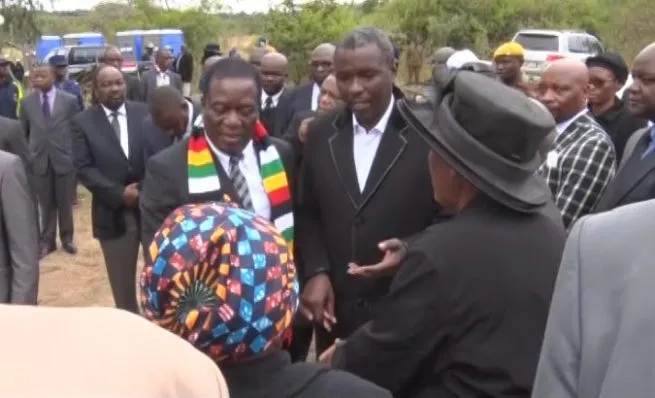Matters escalated again on the same day when a press conference was held by ZANU PF’s Secretary for Information and Publicity, Ambassador Christopher Mutsvangwa, accusing Tagwirei of trying to buy power.
On the Bulawayo Poster Scandal, Chiwenga swiftly issued a public statement distancing himself from the event and denying any affiliation with the organisers.
This was not just a PR correction—it was a calculated political message.
In ZANU PF, such public rebukes are rare and typically signal deeper fractures.
For Chiwenga to openly disassociate himself from Tagwirei, especially given the latter’s known proximity to Mnangagwa, reveals a deliberate effort to undermine the businessman’s perceived political ambitions, or at the very least, his access to the VP’s platform.
The critical question arises: Why would Tagwirei or his associates issue such a poster without prior consultation or confirmation from the VP’s office?
Was it a strategic gamble to showcase relevance?
Or was it a miscalculation born of desperation, perhaps assuming Mnangagwa’s umbrella still protected him?
Regarding the press conference by ZANU PF Spokesperson, in which he declared emphatically that “money cannot buy power in ZANU PF,” a thinly veiled reference to Tagwirei’s perceived influence through wealth and business interests.
These remarks dealt a public blow to the narrative that financial muscle could substitute for grassroots political legitimacy within the party.
This statement not only reinforced the idea that Tagwirei’s exclusion was deliberate, but also raised two possible interpretations: either ZANU PF is earnestly adhering to its constitution and democratic processes, or—more tellingly—President Mnangagwa is no longer able to exert the kind of behind-the-scenes influence once expected of him, particularly when it comes to elevating his close allies.
In ZANU PF, the Central Committee is not just symbolic; it is a command centre of strategy, resources, and influence and for Tagwirei, a man with the economic engine behind the Second Republic, to be shut out signals that Mnangagwa’s grip on key party structures may be loosening.
If Mnangagwa had truly wanted Tagwirei elevated, it is hard to believe it couldn’t have happened.
That it did not suggest internal resistance, likely from Vice President Constantino Chiwenga’s faction or other power centers within the party who are recalibrating for a future without Mnangagwa at the helm.
Taken together, Tagwirei’s exclusion from the Central Committee and the public distancing by VP Chiwenga paint a compelling picture of a power reconfiguration within ZANU PF.
Mnangagwa, while still the official leader, may be seeing the limits of his influence.
If he cannot shield or promote his key allies, then his authority within the party is increasingly symbolic rather than functional.
Tagwirei’s political misfortunes might just be the tip of the iceberg.
Behind the scenes, the jockeying for 2028—and the ideological question of whether 2030 is even on the table—has begun in earnest.
In such a climate, public optics like posters, endorsements, and committee placements are more than protocol—they are political weapons. 🔗 Read Full Article
All Zim News is a central hub for all things Zimbabwean, curating news from across the country so no story is missed.
Alongside aggregation, our team of nationwide reporters provides real-time, on-the-ground coverage.
Stay informed and connected — reach us at admin@allzimnews. com.
